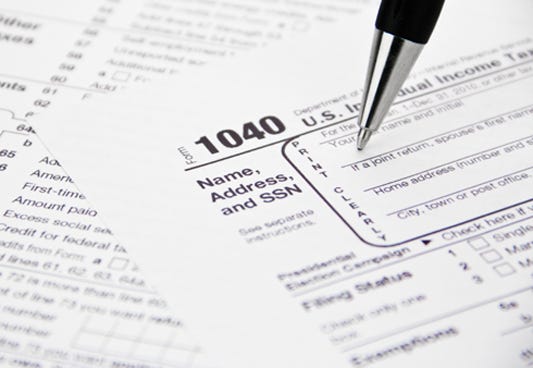
FORT WALTON BEACH — The Better Business Bureau of Northwest Florida received several calls March 21 from Pensacola area residents that they are receiving calls from people posing as the IRS.
The callers claim the consumer owes taxes and the money needs to be paid right away. The ‘scammers’ are posing as IRS employees and threatening the consumers with arrest if their debt is not paid immediately.
If you receive one of these calls, please do not provide any personal information or give them access to your bank accounts/send them money.
Here are tips from the IRS if you should receive a call similar to this.
Scammers make unsolicited calls. Thieves call taxpayers claiming to be IRS officials. They demand that the victim pay a bogus tax bill.
They con the victim into sending cash, usually through a prepaid debit card or wire transfer. They may also leave “urgent” callback requests through phone “robo-calls,” or via phishing email.
Callers try to scare their victims. Many phone scams use threats to intimidate and bully a victim into paying. They may even threaten to arrest, deport or revoke the license of their victim if they don’t get the money.
Scams use caller ID spoofing. Scammers often alter caller ID to make it look like the IRS or another agency is calling. The callers use IRS titles and fake badge numbers to appear legitimate. They may use the victim’s name, address and other personal information to make the call sound official.
Con artists try new tricks all the time. Some schemes provide an actual IRS address where they tell the victim to mail a receipt for the payment they make. Others use emails that contain a fake IRS document with a phone number or an email address for a reply. These scams often use official IRS letterhead in emails or regular mail that they send to their victims. They try these ploys to make the ruse look official.
Scams cost victims over $23 million. The Treasury Inspector General for Tax Administration, or TIGTA, has received reports of about 896,000 scam contacts since October 2013. Over 5,000 victims have collectively paid over $26.5 million as a result of the scam. Just this year, the IRS has seen a 400 percent increase in phishing schemes.
Callers use other tactics as well, since many consumers have already filed their returns and are waiting on confirmation of their filings and/or refunds. Scammers will contact the consumer and tell them they have their return and they need to verify their information in order to process their refund check.
They try to retrieve Social Security numbers and/or personal financial information such as bank records or credit cards.
The IRS will not:
Call you to demand immediate payment. The IRS will not call you if you owe taxes without first sending you a bill in the mail.
Demand that you pay taxes and not allow you to question or appeal the amount you owe.
Require that you pay your taxes a certain way. For instance, require that you pay with a prepaid debit card.
Ask for your credit or debit card numbers over the phone.
Threaten to bring in police or other agencies to arrest you for not paying.
If you don’t owe taxes, or have no reason to think that you do:
●Do not give out any information. Hang up immediately.
●Report it on the BBB Scam Tracker, https://www.bbb.org/scamtracker/northwest-florida/.
●Contact TIGTA to report the call. Use their “IRS Impersonation Scam Reporting” web page. You can also call 800-366-4484.
●Report it to the Federal Trade Commission. Use the “FTC Complaint Assistant” on FTC.gov. Please add "IRS Telephone Scam" in the notes.
If you know you owe, or think you may owe tax, call the IRS at 800-829-1040. IRS workers can help you.
This article originally appeared on Crestview News Bulletin: Northwest Florida: Beware of this latest IRS scam
